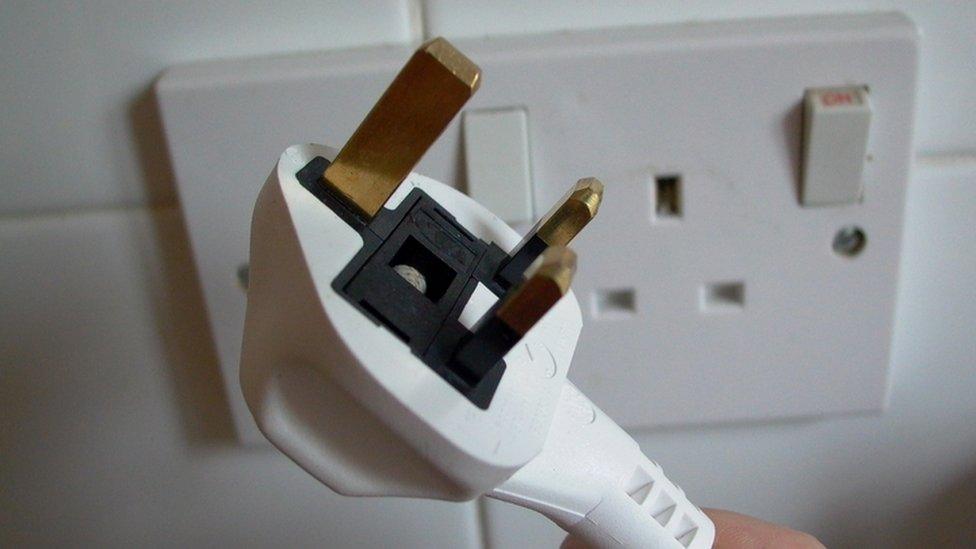Cost of living: A place to get in out of the cold
- Published
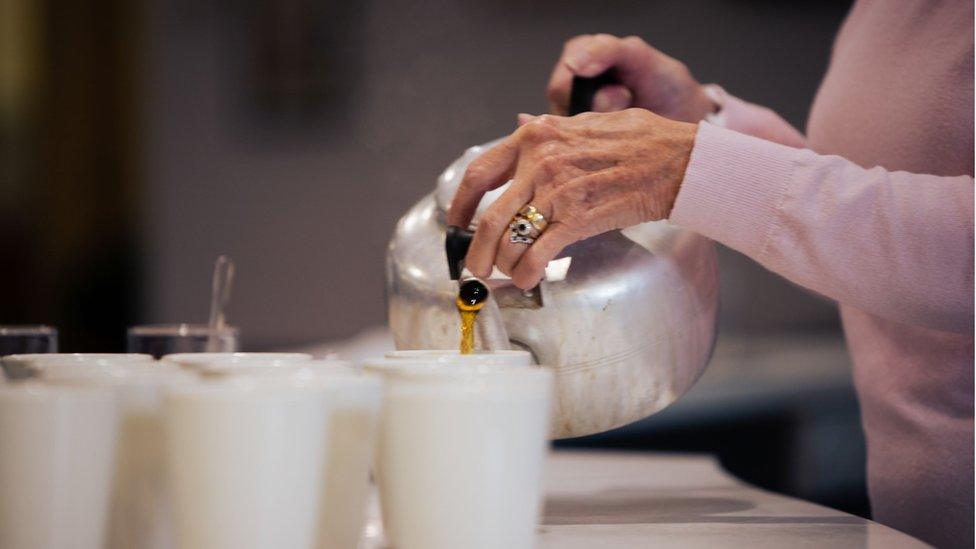
Community and church workers are trying to provide hot drinks and warm spaces as fuel bills rise
The rocketing cost of gas, electricity and oil has prompted local churches and community groups to offer shelter to people struggling to heat their homes.
"These next few months are going to be very challenging," warned the Reverend Mairisíne Stanfield.
As the minister in charge of the First Presbyterian Church in Bangor, County Down, she has opened its doors to people in fuel poverty this winter.
"They can stay for the whole day from 10:00 until 16:00 if they choose, instead of going home to a cold house," she told BBC News NI.
Her church was the first of 18 venues in Northern Ireland which have joined the UK-wide Warm Welcome Campaign, external in response to the cost of living crisis.
BBC News NI speaks to people in Bangor and Londonderry about the rising cost of living.
The initiative encourages community organisations to provide free access to heated buildings which members of the public can use on a regular basis to shelter from cold weather.
The Bangor church is facing a huge hike its own running costs anyway, so giving something back to their local community made sense.
"We have a large facility here and a number of other charities would be renting space from us, so it's very important that we keep the heating on, despite the cost," the minister explained.
"We've got a lovely area called the Hub, which is a coffee bar with nice sofas, tables and chairs.
"There's a bit of library and so we thought that's a perfect place to just have that warm space."
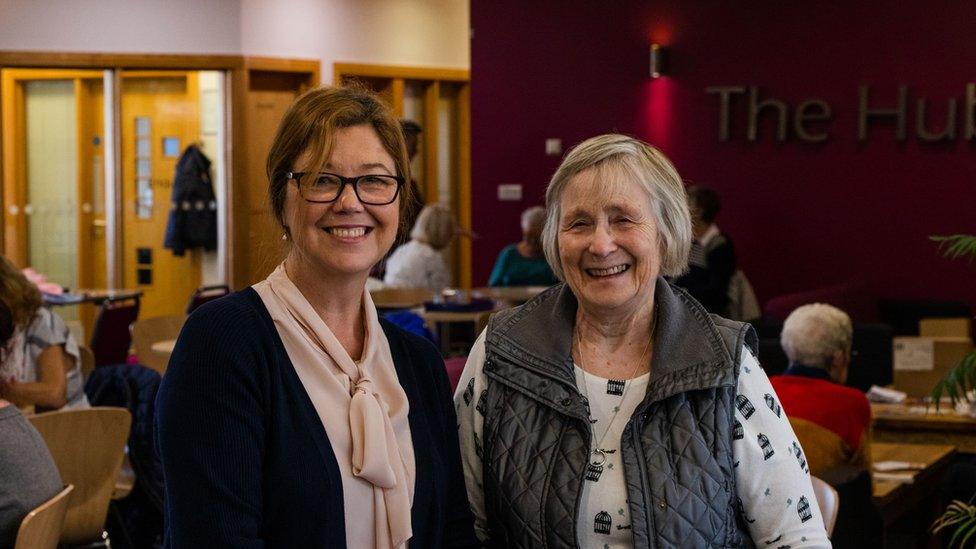
The Reverend Mairisíne Stanfield (left) has invited members of the public into the Hub in Bangor
The minister added that there was no religious agenda and the offer of a warm welcome and free hot drinks was extended to people from all backgrounds.
"There are volunteers here - they'll not bother you if you just want to come in, find a space and do your own thing.
"They'll offer you tea and coffee and a bun, and if you just want to get on with some work or some reading, then you go for it.
"But if you want a wee bit of a chat, then they're there to do that."
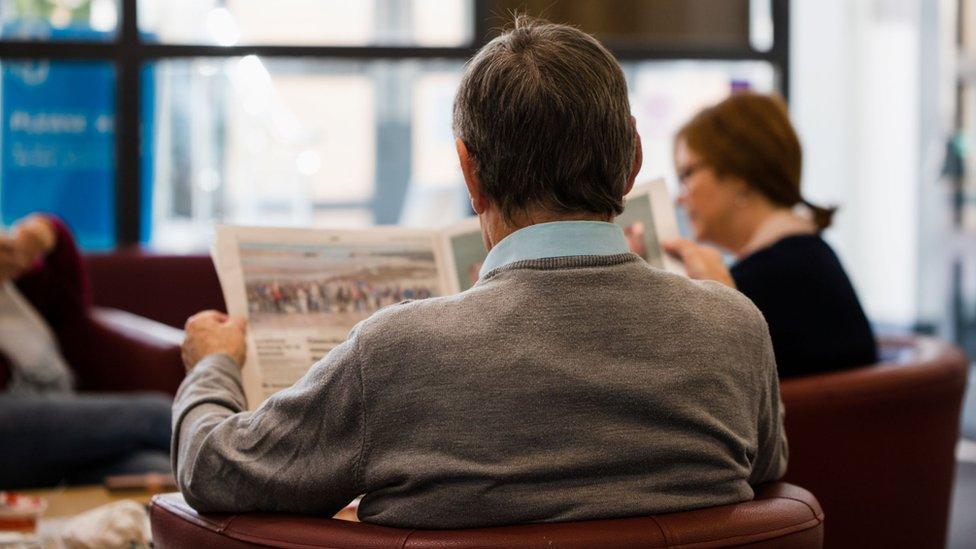
A total of 18 venues in Northern Ireland, including the Hub, have registered as Warm Welcome spaces
The Hub opened to the public on 3 October and will remain open on weekdays for the foreseeable future, but the minister knows it will add to her congregation's already hefty bills.
"Our direct debit for our electricity in the last few months has gone from about £295 a month to £1,100.
"We don't heat our place through electricity, we heat our place through gas and our gas costs have more than doubled," she said.
"Our coldest quarter would be December through to March. We're talking around about £4,000 for that quarter [in 2021].
"This quarter, we expect to pay for our gas around about £9,000 or £10,000."
Churches are not the only venue prepared to open their doors and serve hot drinks despite rising costs.
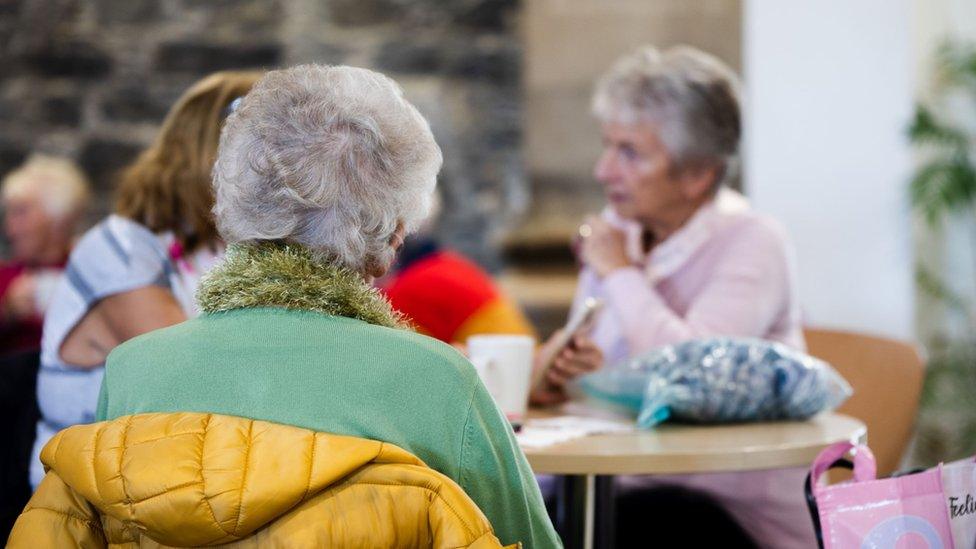
The Bangor church is funded by its large congregation which currently stands at about 1,000 people
In County Tyrone, six organisations have banded together in the hope of establishing a "community lounge" service across Strabane town.
"We're especially feeling the pinch in this area," said Aodhán Harkin from the Fountain Street Community Centre.
"People are coming to us already and we're only in the early days of October. People looking for help and assistance with gas and electricity and food."
Mr Harkin, who also chairs the Strabane Neighbourhood Renewal/Growth Partnership, said if council funding was secured, community lounges would operate from six community centres across the town.
"Different centres will do different times. We're thinking around maybe 10:00 in the morning to 13:00 in the day where people are dropping their children off to school.
"On the way by, they can call into to the centre. The heat will be on, they'll have a drop of tea, coffee, a few biscuits, a bit of social interaction," he said.
"They can stay here until maybe they're ready to go back to the school again to collect the children, rather than go back to a cold house."
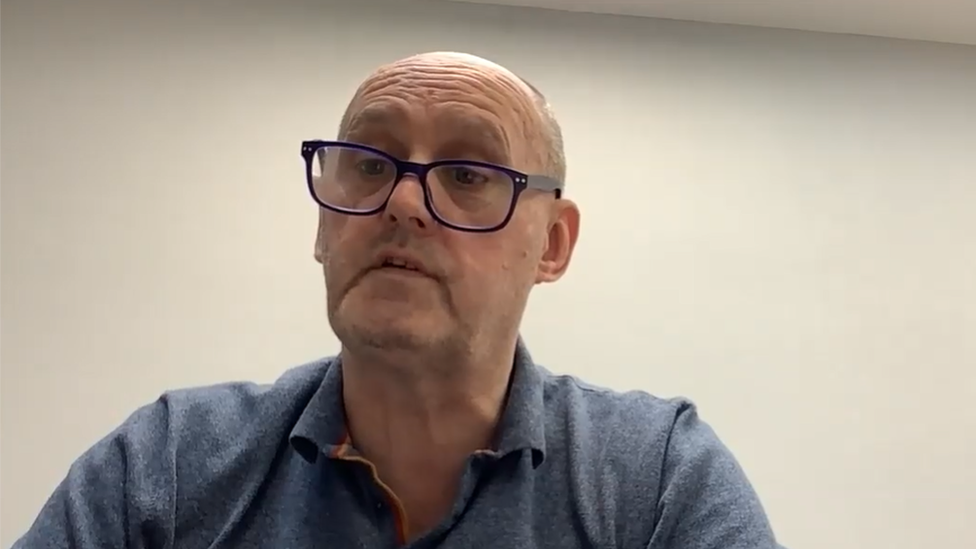
Aodhán Harkin said "the working poor" were struggling to heat their homes
He said the move was in response to "severe pressure" on household finances in the area, with particular concern for the working poor.
Mr Harkin explained that his organisation was based in a location that was previously found to be the number one most deprived area in Northern Ireland.
He said his community was being hit hard by the current cost of living crisis and even families with two working parents were finding it difficult to heat their homes.
"Personally in my own home I installed gas about a year and a half ago and I've found my bills rocketing," he said.
"Last year I paid £150 for the quarter and for the same quarter this period it cost me £370.
"So it went up £220 inside a year. That's a massive increase and we were actually being careful about when we were switching the heating on."
Community organisations can only do so much however, and after business hours people will still face the prospect of returning home to cold houses.
'Crippling the people'
All households in the UK are due to receive a £400 discount on their energy bills this winter.
In Great Britain. the discount is already being delivered in six instalments between October and March, working out at roughly £66 a month.
However, its introduction was delayed in Northern Ireland due to the instability of its devolved government.
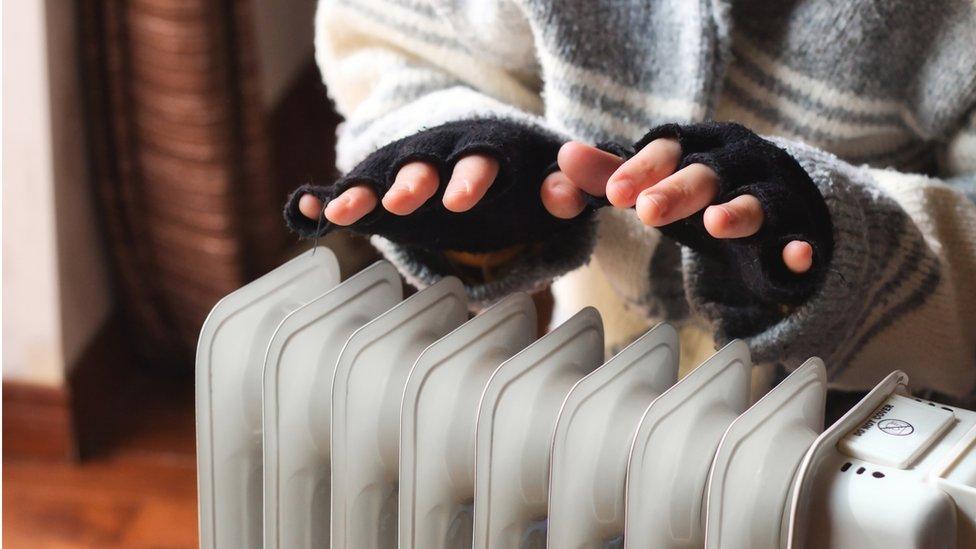
The £400 Northern Ireland Energy Bills Support Scheme is to begin next month
The Stormont Executive has not functioned since February, due to a DUP protest over post-Brexit trading rules.
Last month, Prime Minister Prime Minister Liz Truss said people in Northern Ireland will get their first instalments of the £400 in November and this will be backdated to October.
But Mr Harkin insisted £400 was not going to be enough and called for immediate support from Stormont to help people pay their spiralling heating bills.
"From a local community point of view, we find the unwillingness to form an executive is crippling the people on the ground," he said.


Related topics
- Published12 October 2022
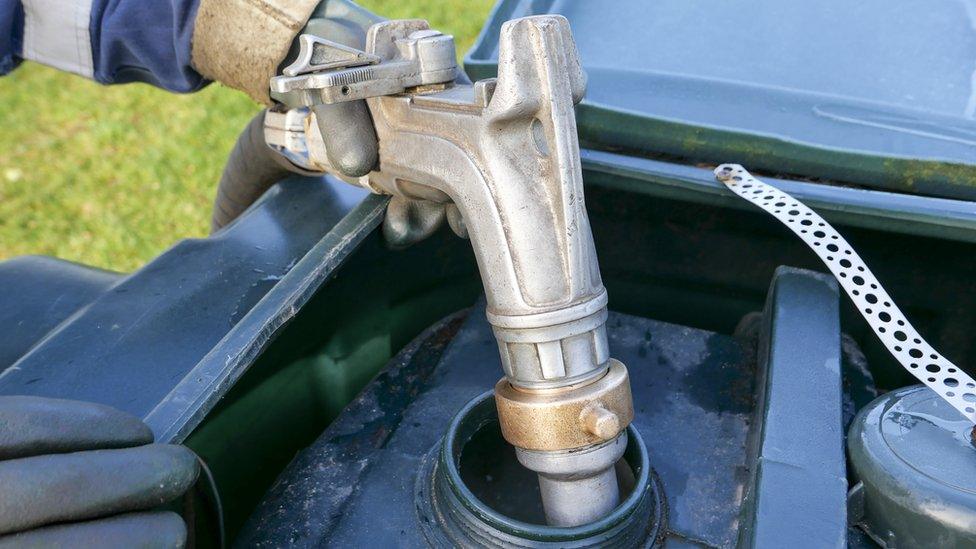
- Published22 September 2022
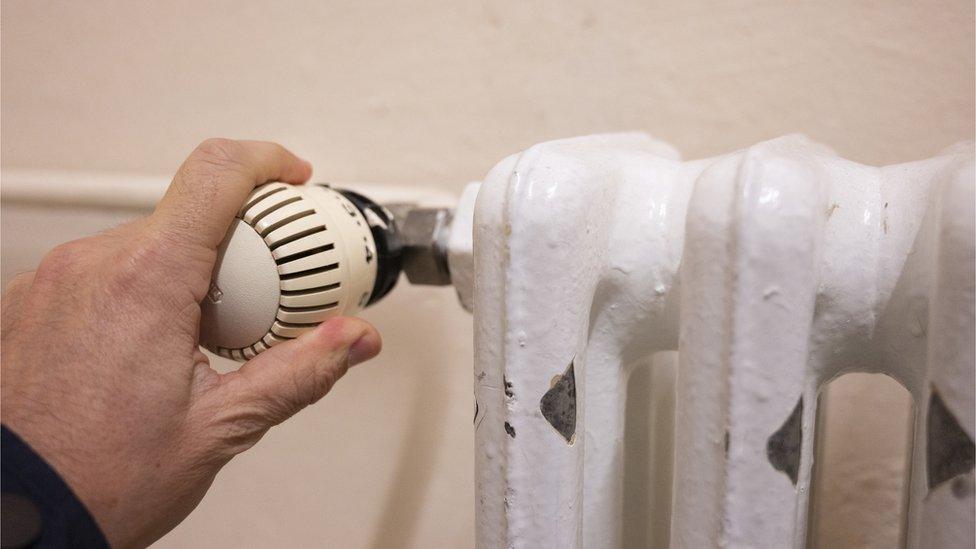
- Published8 September 2022
